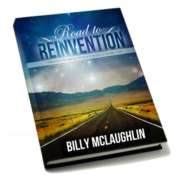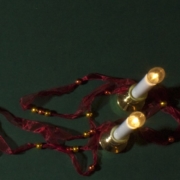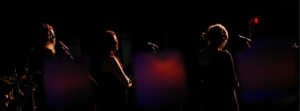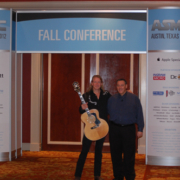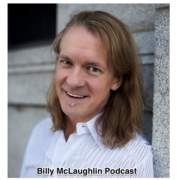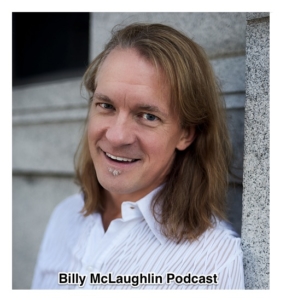Worth the Wait
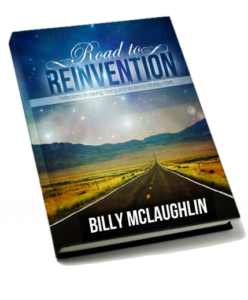 Billy McLaughlin’s new book “Road to Reinvention” will soon to be available—first online and then at a bookstore near you. In it Billy describes his journey from being one of Billboard’s youngest rising stars to his sudden fall from fame when the onset of dystonia ripped away his career. It also explores his ultimate return to stage to as the successful presenter and musician he is today. Billy described, “The purpose of ‘Road to Reinvention’ is to share with people the experience of how it felt and what I learned as I worked my way through some of my darkest moments. Also, I want to share the exhilaration that even an unwanted experience like I had can provide. My challenge with dystonia was both the worst and the best thing that happened to me. I can say this now that I can look back upon my journey. I want others, especially those who have just begun theirs to know the infinite possibilities for discovery and joy that await them. I want them to have the encouragement and evidence they need to pursue what may be one of the most worthwhile endeavors of their lives.”
Billy McLaughlin’s new book “Road to Reinvention” will soon to be available—first online and then at a bookstore near you. In it Billy describes his journey from being one of Billboard’s youngest rising stars to his sudden fall from fame when the onset of dystonia ripped away his career. It also explores his ultimate return to stage to as the successful presenter and musician he is today. Billy described, “The purpose of ‘Road to Reinvention’ is to share with people the experience of how it felt and what I learned as I worked my way through some of my darkest moments. Also, I want to share the exhilaration that even an unwanted experience like I had can provide. My challenge with dystonia was both the worst and the best thing that happened to me. I can say this now that I can look back upon my journey. I want others, especially those who have just begun theirs to know the infinite possibilities for discovery and joy that await them. I want them to have the encouragement and evidence they need to pursue what may be one of the most worthwhile endeavors of their lives.”
Billy’s journey to reinvention was brought about by an unexpected event that dramatically changed his life and set him on a new course for self-discovery. For some, like Billy, a sudden health crisis may be the event that triggers a new journey. For others, it may be the loss of a career, finances, relationship or a combination of factors. At other times, the journey may be one that is long awaited or anticipated—an unfulfilled dream or desire that requires a deliberate change in direction if it to be achieved. Regardless of the motivation, whether the journey is planned or unplanned, those who travel it will encounter similar thoughts, feelings and questions. “In many ways, ‘Road to Reinvention’ is intended to serve as a roadmap that will help readers maneuver through the challenges they face on their own journey as well as to recognize the milestones of their achievement,” Billy explained.
Those readers who are familiar with Billy McLaughlin will gain an even deeper understanding of and appreciation for the journey Billy has taken to bring his music back to the stage. The heart and soul of Billy’s music has a story attached, which will add new dimension to his well-known arrangements. In the same way that Billy’s music lifts your heart, reading “Road to Reinvention” will inspire your imagination and awaken your sense of purpose and adventure.
Originally planned for a September release, “Road to Reinvention” is currently in production. Billy says, “It may a little longer than originally anticipated to complete the editing and work within the publisher’s schedule.” In the meantime, if you’d like to reserve your copy of “Road to Reinvention” please sign up here.

